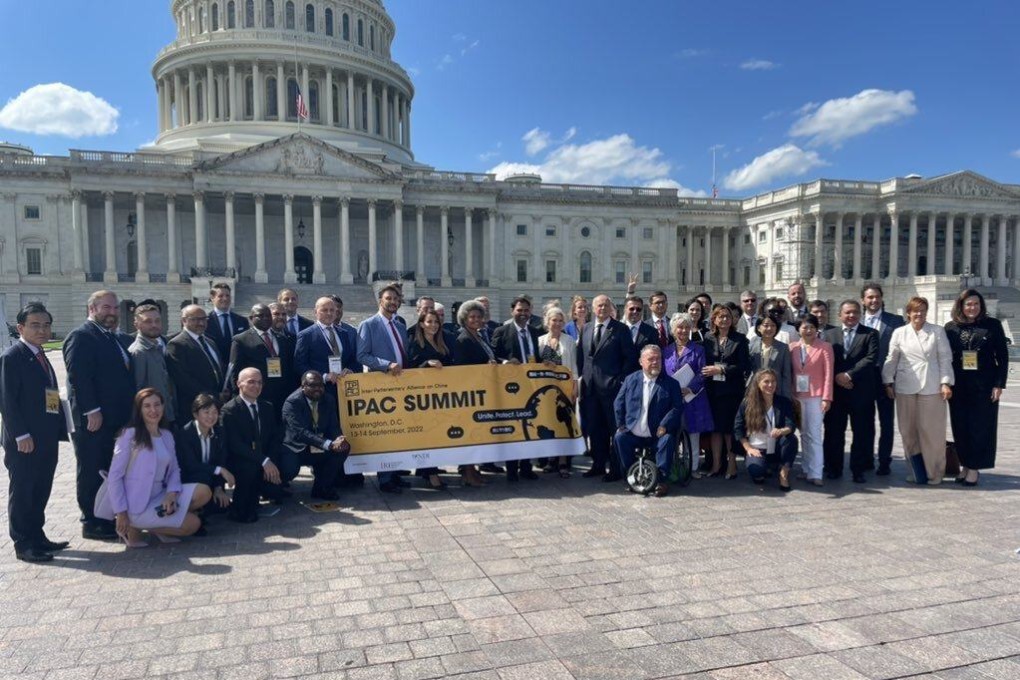Advertisement
China-focused group of global lawmakers meet in Washington to discuss united response to Beijing
- Alliance representing 30 countries to lay out action plan to ‘defend human rights and hold the Chinese Communist Party accountable for its violations’
- US Senator Bob Menendez describes moment as one of most challenging in his career and about ‘what type of world do you want to live in’
Reading Time:3 minutes
Why you can trust SCMP
5

Some 60 elected lawmakers from around the world gathered in Washington on Tuesday to discuss forming a united response to confront China and what they describe as the challenges its Communist Party poses to democratic values.
The Inter-Parliamentary Alliance on China held its summit hosted by two well-known American senators and critics of Beijing: Republican Marco Rubio of Florida, and Democrat Bob Menendez of New Jersey, who chairs the Senate Foreign Relations Committee. The alliance discussed how to coordinate their response to Beijing.
Stating he had “never seen a more challenging time for the United States” in his 30 years working in foreign policy, Menendez laid out the situation before the world as not a “choice between the US and China or the West and China” but about “what type of world do you want to live in”.
Advertisement
He warned of threats Taiwan faces, adding that the self-ruled island China regards as a renegade province “generates 95 per cent of the world’s semiconductors”.
Menendez said the world could “ill afford” to have the Chinese ultimately “control that reality” or see the people of Taiwan “be overcome against their will.”
Advertisement
Advertisement
Select Voice
Select Speed
1.00x